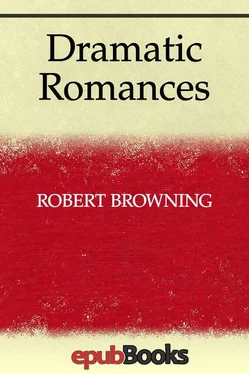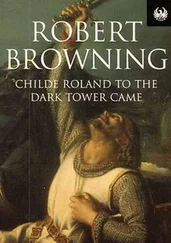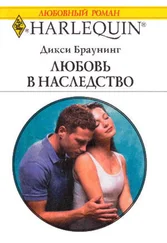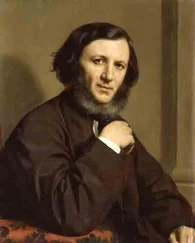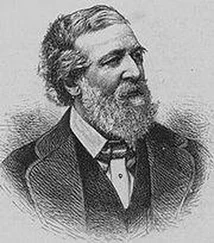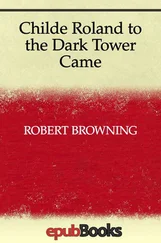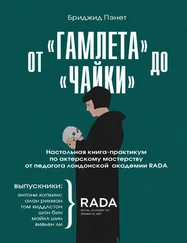Роберт Браунинг - Dramatic Romances
Здесь есть возможность читать онлайн «Роберт Браунинг - Dramatic Romances» весь текст электронной книги совершенно бесплатно (целиком полную версию без сокращений). В некоторых случаях можно слушать аудио, скачать через торрент в формате fb2 и присутствует краткое содержание. Год выпуска: 2014, Издательство: epubBooks Classics, Жанр: Поэзия, на английском языке. Описание произведения, (предисловие) а так же отзывы посетителей доступны на портале библиотеки ЛибКат.
- Название:Dramatic Romances
- Автор:
- Издательство:epubBooks Classics
- Жанр:
- Год:2014
- ISBN:нет данных
- Рейтинг книги:3 / 5. Голосов: 1
-
Избранное:Добавить в избранное
- Отзывы:
-
Ваша оценка:
- 60
- 1
- 2
- 3
- 4
- 5
Dramatic Romances: краткое содержание, описание и аннотация
Предлагаем к чтению аннотацию, описание, краткое содержание или предисловие (зависит от того, что написал сам автор книги «Dramatic Romances»). Если вы не нашли необходимую информацию о книге — напишите в комментариях, мы постараемся отыскать её.
Dramatic Romances — читать онлайн бесплатно полную книгу (весь текст) целиком
Ниже представлен текст книги, разбитый по страницам. Система сохранения места последней прочитанной страницы, позволяет с удобством читать онлайн бесплатно книгу «Dramatic Romances», без необходимости каждый раз заново искать на чём Вы остановились. Поставьте закладку, и сможете в любой момент перейти на страницу, на которой закончили чтение.
Интервал:
Закладка:
So! While these wait the trump of doom,
How do their spirits pass, I wonder,
Nights and days in the narrow room?
Still, I suppose, they sit and ponder
What a gift life was, ages ago,
Six steps out of the chapel yonder.
Only they see not God, I know, 220
Nor all that chivalry of his,
The soldier–saints who, row on row,
Burn upward each to his point of bliss—
Since, the end of life being manifest,
He had burned his way thro' the world to this.
I hear you reproach, "But delay was best,
For their end was a crime." Oh, a crime will do
As well, I reply, to serve for a test,
As a virtue golden through and through,
Sufficient to vindicate itself 230
And prove its worth at a moment's view!
Must a game be played for the sake of pelf
Where a button goes, 'twere an epigram
To offer the stamp of the very Guelph.
The true has no value beyond the sham:
As well the counter as coin, I submit,
When your table's a hat, and your prize a dram.
Stake your counter as boldly every whit,
Venture as warily, use the same skill,
Do your best, whether winning or losing it, 240
If you choose to play!—is my principle.
Let a man contend to the uttermost
For his life's set prize, be it what it will!
The counter our lovers staked was lost
As surely as if it were lawful coin:
And the sin I impute to each frustrate ghost
Is—the unlit lamp and the ungirt loin,
Though the end in sight was a vice, I say.
You of the virtue (we issue join)
How strive you? De te, fabula! 250
NOTES:
"The Statue and the Bust" creates the characters and the situation, and dramatically represents a story which is based on a Florentine tradition that Duke Ferdinand I placed his equestrian statue in the Piazza dell' Annunziata so that he might gaze forever towards the old Riccardi Palace, where a lady he loved was imprisoned by her jealous husband. The bride and her ducal lover are seen exchanging their first looks, through which they perceive the genuineness of their love; and the temporizing of each is presented, through which, for the sake of petty conveniences, they submit to be thwarted by the wary husband, and to have the end they count supreme delayed until love and youth have gone, and the best left them is the artificial gaze interchanged by a bronze statue in the square and a clay face at the window. The closing stanzas point the moral against the palsy of the will, whose strenuous exercise is life's main gift.
I. There's a palace in Florence: refers to the old Riccardi Palace, now the Palazzo Antinori, in the square of the Annunziata, where the statue still stands.
22. encolure: neck and shoulder of a horse
33. The pile which the mighty shadow makes: refers to another palace in the Via Larga where the duke (not the lady) lived, and which is to–day known as the Riccardi Palace. Cooke's "Browning Guide Book" and Berdoe's "Browning Cyclopaedia" both confuse the two, attributing error to Browning in spite of his letter about it. This confusion was cleared up by Harriet Ford (Poet–lore, Dec. 1891, vol. iii. p. 648, "Browning right about the Riccardi Palace'').
36. Because of a crime, etc.: refers to the destroying of the liberties of the Florentine republic by Cosimo dei Medici and his grandson, Lorenzo, who lived in the then Medici (now Riccardi) Palace, whose darkening of the street with its bulk symbolizes the crime which took the light from Florence.
57. catafalk: the stage or scaffolding for a coffin whilst in the church
94. Arno bowers: the palace by the Arno, the river flowing through Florence.
95. Petraja: a Florentine suburb.
169. Robbia's craft: the Robbia family were skilled in shaping the bisque known as Della Robbia ware which was long one of the Florentine manufactures, and traces of which, when Browning wrote, still adorned the outer cornice of the palace.
202. John of Douay [Giovanni of Bologna], sculptor (1524–1608). The statue is one of his finest works.
250. De te, fabula! Concerning thee, this fable!
Porphyria's Lover
The rain set early in to–night,
The sullen wind was soon awake,
It tore the elm–tops down for spite,
And did its worst to vex the lake:
I listened with heart fit to break.
When glided in Porphyria; straight
She shut the cold out and the storm,
And kneeled and made the cheerless grate
Blaze up, and all the cottage warm;
Which done, she rose, and from her form 10
Withdrew the dripping cloak and shawl,
And laid her soiled gloves by, untied
Her hat and let the damp hair fall,
And, last, she sat down by my side
And called me. When no voice replied,
She put my arm about her waist,
And made her smooth white shoulder bare,
And all her yellow hair displaced,
And, stooping, made my cheek lie there,
And spread, o'er all, her yellow hair, 20
Murmuring how she loved me—she
Too weak, for all her heart's endeavour,
To set its struggling passion free
From pride, and vainer ties dissever,
And give herself to me for ever.
But passion sometimes would prevail,
Nor could to–night's gay feast restrain
A sudden thought of one so pale
For love of her, and all in vain:
So, she was come through wind and rain. 30
Be sure I looked up at her eyes
Happy and proud; at last I knew
Porphyria worshipped me; surprise
Made my heart swell, and still it grew
While I debated what to do.
That moment she was mine, mine, fair,
Perfectly pure and good: I found
A thing to do, and all her hair
In one long yellow string I wound
Three times her little throat around, 40
And strangled her. No pain felt she;
I am quite sure she felt no pain.
As a shut bud that holds a bee,
I warily oped her lids: again
Laughed the blue eyes without a stain.
And I untightened next the tress
About her neck; her cheek once more
Blushed bright beneath my burning kiss:
I propped her head up as before,
Only, this time my shoulder bore 50
Her head, which droops upon it still:
The smiling rosy little head,
So glad it has its utmost will,
That all it scorned at once is fled,
And I, its love, am gained instead!
Porphyria's love: she guessed not how
Her darling one wish would be heard.
And thus we sit together now,
And all night long we have not stirred,
And yet God has not said a word! 60
NOTES:
"Porphyria's Lover" relates how, by strangling Porphyria with her own yellow hair, the lover seized and preserved the moment of perfect love when, pure and good, Porphyria left the world she could not forego for his sake, and came to him, for once conquered by her love. A latent misgiving as to his action is intimated in the closing line of the poem.
Remarking upon the fact that Browning removed the original title, "Madhouse Cells," which headed this poem, and "Johannes Agricola in Meditation," Mrs. Orr says: "Such a crime might be committed in a momentary aberration, or even intense excitement of feeling. It is characterized here by a matter–of–fact simplicity, which is its sign of madness. The distinction, however, is subtle; and we can easily guess why this and its companion poem did not retain their title. A madness which is fit for dramatic treatment is not sufficiently removed from sanity."
"Childe Roland to the Dark Tower Came."
(See Edgar's Song in "Lear.")
I
My first thought was, he lied in every word,
That hoary cripple, with malicious eye
Askance to watch the working of his lie
On mine, and mouth scarce able to afford
Suppression of the glee, that pursed and scored
Its edge, at one more victim gained thereby.
Интервал:
Закладка:
Похожие книги на «Dramatic Romances»
Представляем Вашему вниманию похожие книги на «Dramatic Romances» списком для выбора. Мы отобрали схожую по названию и смыслу литературу в надежде предоставить читателям больше вариантов отыскать новые, интересные, ещё непрочитанные произведения.
Обсуждение, отзывы о книге «Dramatic Romances» и просто собственные мнения читателей. Оставьте ваши комментарии, напишите, что Вы думаете о произведении, его смысле или главных героях. Укажите что конкретно понравилось, а что нет, и почему Вы так считаете.
